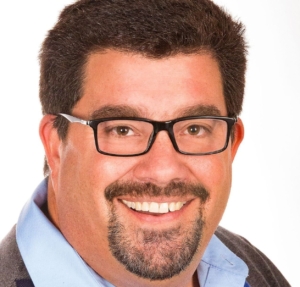What Does Intuitive Eating Mean?
Intuitive eating tends to bring up a lot of feelings with folks as they move through different stages of recovery from eating disorders. In my work, I find that it is a topic that can lead to some difficult conversations around food and bodies. Intuitive eating is often misunderstood on many different levels and so I’d like to start talking about what intuitive eating is NOT in the hopes of dispelling some myths.
1. Intuitive Eating is not tool for weight loss/gain in any way.
If someone is talking about intuitive eating as a means to manage weight (whatever that means) then they are not talking intuitive eating…they are talking dieting! I tell my clients 1 of 3 things will happen when they become intuitive eaters, their weight will go up, it will stay the same or it will go down, but I don’t know which. That right there is a challenging thing to accept!
2. Intuitive Eating is not just “eating when you are hungry and stopping when you are full.”
There are 10 principles of intuitive eating and they work in concert together. To fully embrace intuitive eating, means understanding each principle.
3. Intuitive Eating is not “giving up” and just eating whatever the heck you want.
Yes, one of the important parts of intuitive eating is giving yourself unconditional permission to eat, but that permission is not eating with reckless abandon. It’s the complete opposite. Instead, it is unconditional permission to eat, but with curiosity and non-judgment. Truly having unconditional permission to eat allows us to learn to how to make peace with food, remove the emotional power of a “fear food” and learn to feel safe around ALL foods.
So, what is Intuitive Eating then what does it mean, to me?
Intuitive eating is about trusting your inner body wisdom to make choices around food that feel good in your body, without judgment and without influence from diet culture. We are all born with the skill to eat, to stop when we are full, to eat when we are hungry and to eat satisfying foods. As we grow up that can change for a variety of reasons. Many of us lose that freedom and intuitive eating is learning to reclaim it. When we filter out the noise and influence that diet culture presents to us as false truths, we can then truly listen to what our body wants and needs from food.
Intuitive eating is a peace movement. It’s ending the war with your body, learning to accept our diverse genetic blueprint. Diet culture would have us believe all the rules we have around food as gospel because they are all, in some way, focused on the thin ideal; that any body other than a thin one, is wrong. Those food rules lead to an emotional value placed on food and when we put that emotional value on food, we then internalize it as we eat and that leads to thoughts like, “I’m so bad because I ate XXXXXX.”
Let me be clear, food is not good or bad and labeling it as such can pose many problems. Nutritionally, just like bodies, all foods are different. Emotionally though, all foods must be equal. One food does not make you bad while the other makes you good. If we can approach ALL FOODS as emotionally equal, we can truly begin to connect with our own inner wisdom. Intuitive eating is about making peace with food and giving up the needless war against our body and how we eat.
Intuitive eating is challenging and can be difficult to understand. It’s completely opposite of how we’ve been taught to think about food. It’s not black or white, it’s gray, nuanced and there is no one “right way” which is why it can be so confusing.
Intuitive eating is a beautiful part of recovery. It is also an essential piece in the prevention of eating disorders. If you are struggling to understand what intuitive eating really is, I suggest you read the book, or buy the official workbook to help you learn more. I also highly recommend finding a therapist or dietitian who truly understands this work as they become essential partners in adopting these principles.
Aaron Flores, RDN has a private practice in Los Angeles. He specializes in Intuitive Eating and Health at Every Size® and helps people reclaim Body Trust®. In addition to his private practice he is also the co-host of the podcast, Dietitians Unplugged.





